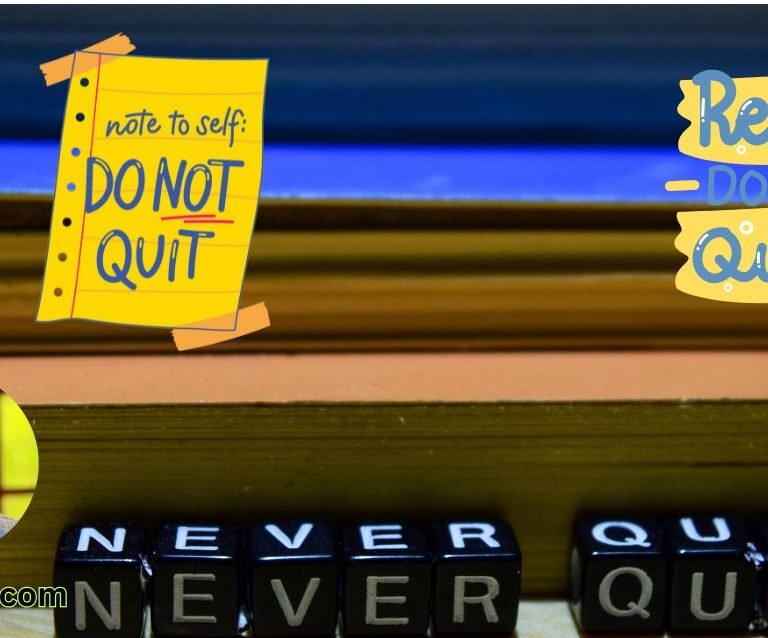Happiness is often misconceived as a fleeting emotional state influenced predominantly by external factors such as circumstances, relationships, or material possessions
Happiness is often misconceived as a fleeting emotional state influenced predominantly by external factors such as circumstances, relationships, or material possessions. However, research and personal experiences suggest that happiness is far more complex and nuanced. It is not merely a passive condition that occurs in response to life events; rather, it is an active pursuit shaped by individual choices, attitudes, and mindset.
The journey toward happiness requires conscious effort and self-reflection. It involves recognizing that each person holds the reins to their own emotional landscape. By making deliberate choices aligned with their values and aspirations, individuals can cultivate an environment that fosters joy and fulfillment. This understanding encourages individuals to take ownership of their feelings and well-being, shifting the narrative from one of external blame to internal empowerment. The choices one makes in daily life, whether small or significant, can significantly influence their overall sense of happiness.
Furthermore, happiness is a deeply personal experience, varying greatly from person to person. What brings joy and contentment to one individual may not resonate with another. Therefore, recognizing that individuals have the power to define their own happiness is crucial. This understanding allows people to set their own benchmarks and pursue goals that truly reflect their desires. In this light, happiness becomes a journey of personal growth rather than a destination defined by societal expectations or external validation.
In essence, the path to inner joy involves actively engaged choices, self-awareness, and a commitment to shaping one’s own reality. By acknowledging that happiness is not dependent on external circumstances but is an inside job, individuals are empowered to navigate life’s complexities with a greater sense of control and satisfaction.
The Myth of External Happiness
The pursuit of happiness is often intertwined with external sources, such as material possessions, relationships, and personal achievements. In modern society, it is common to equate happiness with the ownership of luxury items, the approval of peers, or the accomplishment of career milestones. However, this perspective presents a flawed understanding of what true happiness entails. The belief that external factors can constitute stable sources of joy is a prevalent myth that many individuals fall victim to.
Material possessions, for instance, may bring about a fleeting sense of happiness upon acquisition. A new car or a fashionable outfit can create excitement and a temporary boost in mood. Yet, such feelings often dissipate quickly, leaving individuals craving the next item to fill the void. This cycle of consumerism can create a reliance on goods for happiness, which is ultimately unfulfilling. Similarly, the quest for validation through relationships can also lead to dependency. Although meaningful connections can infuse life with joy, tying one’s self-worth exclusively to others’ opinions can result in disappointment and emotional instability.
Furthermore, the pursuit of achievements can foster a relentless, never-ending struggle. While attaining goals can bring a sense of accomplishment, the pressure to continually excel can overshadow the enjoyment of the moment. As a consequence, the transient nature of joy derived from these external sources often leaves individuals feeling empty and dissatisfied in the long run. The realization that happiness is fundamentally an internal experience is crucial. When individuals prioritize self-awareness and personal growth, they pave the way toward lasting contentment that is less sensitive to the fluctuations of external circumstances.
The Role of Personal Values
Understanding and identifying personal values is a fundamental step toward achieving happiness and inner joy. Personal values act as internal guiding principles that influence decisions, shape behaviors, and ultimately determine the direction of one’s life. When individuals are aware of their core values, they are empowered to make choices that resonate with their true selves, fostering a sense of authenticity and fulfillment.
Aligning daily choices with personal values can significantly enhance one’s satisfaction in life. When actions reflect our values, we tend to experience a deeper connection with our endeavors and relationships. For example, if one values family, prioritizing time with loved ones can yield profound joy and reinforce those bonds. Moreover, this alignment assures that decisions are intentional rather than reactive, promoting a more serene and harmonious existence.
To begin identifying personal values, individuals can take several practical steps. First, self-reflection is crucial; journaling about life experiences can bring clarity regarding what truly matters. Consider moments of happiness or fulfillment, and analyze the common themes that emerge. Second, creating a values list can aid in discernment. Taking time to review and narrow down a list of values—such as respect, integrity, love, or adventure—can reveal which resonate most strongly with one’s identity.
Another effective approach is to visualize future scenarios where values are prioritized. Ask oneself questions such as: “What does my ideal life look like if I fully embrace my values?” This visualization reinforces the importance of integrating these principles into everyday life. Lastly, developing a roadmap for happiness can solidify commitment to living by these values. Setting specific, measurable goals that reflect these principles encourages ongoing evaluation and alignment.
In summary, understanding personal values is essential for fostering happiness. By integrating these values into daily actions, individuals can create a life that resonates with authenticity and joy, ultimately cultivating a deeper sense of inner peace.
Choosing Happiness Daily
In the pursuit of happiness, it is essential to recognize that happiness is not merely a result of external circumstances but rather a conscious choice that can be made each day. By engaging in deliberate actions that enhance one’s well-being, individuals can create a positive environment conducive to happiness. This approach emphasizes the importance of making daily choices that reflect our values and priorities.
Practicing gratitude is one of the simplest yet most effective means to nurture happiness. By taking a few moments each day to acknowledge the aspects of life that bring joy—whether it is the support of friends, the beauty of nature, or even a beloved pet—individuals can cultivate a more positive mindset. Keeping a gratitude journal can be particularly beneficial, as it encourages reflection on daily experiences that might otherwise go unnoticed. Over time, this practice can significantly impact overall happiness levels, fostering a deeper appreciation for life’s moments.
Engaging in hobbies is another critical aspect of choosing happiness. Investing time in activities that bring joy and fulfillment, such as reading, painting, or gardening, allows individuals to express themselves creatively while also acting as an antidote to stress. By allocating time for these pursuits, one can experience increased relaxation and satisfaction, which can contribute to a sustained sense of happiness.
Additionally, fostering positive relationships plays a vital role in one’s happiness journey. Surrounding oneself with supportive and uplifting people can lead to a greater sense of connection and belonging. Simple actions, such as reaching out to friends or participating in community events, can strengthen these bonds. These relationships serve as a foundation for emotional support, thereby enhancing one’s happiness through shared experiences and mutual encouragement.
The Power of Mindset
Mindset plays a crucial role in shaping our experiences and overall happiness. It encompasses our thoughts, beliefs, and attitudes, which ultimately influence how we perceive the world around us. A positive mindset can create a ripple effect, enhancing our emotional well-being and making it easier to navigate life’s challenges. When individuals adopt an optimistic perspective, they are better equipped to cope with stress, embrace change, and cultivate resilience. On the other hand, a negative mindset can hinder personal growth, leading to feelings of despair and discontent.
One effective technique for fostering a positive mindset is the practice of positive affirmations. These are simple, yet powerful statements that help reinforce positive beliefs about oneself. By regularly repeating affirmations, individuals can challenge and reframe negative self-talk, thereby paving the way for increased self-confidence and inner joy. This practice encourages individuals to articulate their desires and aspirations while simultaneously countering internal doubt.
Mindfulness is another powerful tool that can aid in developing a positive mindset. By engaging in mindfulness practices such as meditation or deep breathing, individuals can cultivate greater awareness of their thoughts and feelings. This heightened awareness allows people to observe their thought patterns, enabling them to identify and address negative thinking. Rather than feeling overwhelmed by difficulties, mindfulness encourages a more balanced perspective that embraces the present moment.
Reframing negative thoughts is an additional technique that can facilitate a mindset shift. This involves consciously altering the interpretation of a negative situation to uncover potential growth opportunities. For instance, rather than viewing a setback as a failure, one can reframe it as a lesson learned, which can enhance motivation and foster a sense of accomplishment. By applying these techniques—positive affirmations, mindfulness, and reframing—individuals can cultivate a more optimistic mindset that serves as a foundation for their journey toward happiness.
Overcoming Obstacles to Happiness
Achieving happiness is often a challenging journey, with several common obstacles hindering individuals from experiencing inner joy. Among these challenges, fear, self-doubt, and negative self-talk stand out as significant barriers. Fear can manifest in various forms, such as fear of failure or fear of judgment, which can prevent individuals from pursuing opportunities that may lead to greater fulfillment. To combat fear, it is vital to confront the underlying beliefs that fuel these emotions. A helpful strategy involves identifying specific fears and breaking them down into manageable steps, gradually desensitizing oneself to these intimidating concepts.
Self-doubt, another pervasive obstacle, often arises from comparing oneself to others or from an internalized fear of inadequacy. This can stifle one’s ability to embrace personal strengths and achievements. To overcome self-doubt, individuals should cultivate self-awareness by regularly reflecting on their accomplishments, skills, and intrinsic worth. Journaling can be an effective technique for documenting these reflections, as it provides an outlet to articulate positive affirmations and reinforce self-belief. Additionally, surrounding oneself with supportive individuals who uplift and encourage personal growth can strengthen resilience against self-doubt.
Negative self-talk is yet another foe on the path to happiness. This destructive dialogue can perpetuate feelings of unworthiness and sadness. Challenging these thoughts is paramount; individuals can practice cognitive restructuring techniques, which involve identifying negative thoughts and reframing them into more positive, realistic assertions. Mindfulness practices, such as meditation and deep-breathing exercises, also promote a more balanced mindset, enabling individuals to approach challenges with clarity and calmness.
Ultimately, cultivating resilience through these strategies, combined with a strong support system and self-compassion, equips individuals to face and overcome obstacles on their quest for happiness. By addressing these challenges head-on, one can foster a more profound sense of inner joy and well-being.
Creating a Happiness Action Plan
To embark on a journey toward inner joy, creating a personalized happiness action plan is essential. This structured approach allows individuals to set realistic goals, monitor their progress, and cultivate long-lasting happiness. The first step in this process involves identifying specific areas in your life that you wish to improve. This might include enhancing relationships, engaging in activities that bring joy, or pursuing personal growth. By pinpointing these areas, you can create focused and achievable goals.
Once you have established your goals, it is important to break them down into smaller, manageable tasks. For example, if your goal is to spend more time with family, consider implementing weekly family outings or game nights. By structuring your goals this way, the likelihood of success increases, as you are setting yourself up with clear, actionable steps. You can utilize tools such as journals, apps, or calendars to track your progress effectively. Regularly logging your achievements, no matter how minor, can provide visual motivation and boost self-esteem.
Additionally, recognizing and celebrating small victories is vital for maintaining momentum on your happiness journey. Celebrations can be as simple as treating yourself to a favorite snack, enjoying a moment of relaxation, or sharing your accomplishments with friends or family. These small rewards reinforce positive behaviors and encourage continued growth.
It is crucial to recognize that plans may require adjustments over time. Life circumstances change, and the initial goals might need reevaluation. Schedule periodic reviews of your action plan to ensure that it continues to align with your evolving desires. This adaptability not only aids in personal development but also fosters resilience, reinforcing a commitment to your happiness.
The Importance of Self-Care
Self-care plays a essential role in nurturing happiness and cultivating a sense of well-being. It encompasses a variety of practices that cater to an individual’s physical, emotional, and mental health needs. By prioritizing self-care, individuals can create a foundation for a more fulfilling life, ultimately leading to improved happiness.
Physical self-care involves taking responsibility for one’s body through regular exercise, a balanced diet, and adequate rest. Engaging in physical activities, such as walking, yoga, or any preferred sport, contributes to the release of endorphins, which are known as “feel-good” hormones. Moreover, maintaining a healthy diet rich in nutrients supports overall health and enhances mood regulation. It is equally important to ensure sufficient sleep, as it profoundly impacts mental clarity and emotional stability. Simple adjustments, such as setting a regular sleep schedule or allocating time for exercise, can significantly improve one’s physical self-care routine.
Emotional self-care is another vital aspect that involves recognizing and nurturing one’s feelings. Activities such as journaling, engaging in creative pursuits, or simply talking with friends can provide substantial emotional release and help to process thoughts and experiences. Moreover, developing boundaries and practicing mindfulness leads to a healthier emotional landscape, which is crucial for achieving happiness. To incorporate emotional self-care into daily life, individuals could set aside time each week to engage in their favorite hobbies or schedule moments for reflection.
Mental self-care focuses on stimulating the mind and preventing cognitive fatigue. This can include reading, puzzles, or learning new skills. Allocating specific times during the day for engaging these activities encourages a sense of accomplishment and continual growth. Prioritizing self-care in any form ensures a balanced and healthy lifestyle, which ultimately opens the path to lasting joy and satisfaction.
Your Journey to Happiness
The pursuit of happiness is a deeply personal journey, one that often varies significantly from person to person. Each individual’s path is shaped by their experiences, beliefs, and aspirations, making the quest for inner joy unique and diverse. Embracing your journey toward happiness involves recognizing that it is not merely a destination but a lifelong adventure filled with growth and self-discovery. This understanding allows one to appreciate the nuances of their experiences, including the challenges and triumphs encountered along the way.
One of the most significant aspects of owning your happiness is acknowledging that it is not defined by external circumstances or comparisons to others. As author and motivational speaker Andrew Matthews once stated, “Happiness is not a destination. It is a way of life.” This perspective emphasizes that happiness comes from within and involves accepting one’s circumstances while actively pursuing personal goals and dreams. By doing so, you empower yourself to navigate the complexities of life, forging a path that resonates with your values and desires.
Inspiring anecdotes abound that illustrate the importance of this personal journey. For instance, consider the story of Viktor Frankl, a Holocaust survivor and psychiatrist, who observed that those who found meaning in their suffering were often able to maintain a sense of fulfillment amidst dire circumstances. His insights remind us that happiness is about perspective and embracing our journey, regardless of the obstacles we face.
As you reflect on your unique path, remember that the pursuit of happiness is not a race but a personal exploration. Allow yourself the grace to forge ahead, learning and growing at your pace. Acknowledge that it is perfectly acceptable for your journey towards happiness to look different from that of others. The most important aspect is to embrace your own adventure, setting the foundation for a fulfilling life rooted in authenticity and joy.









